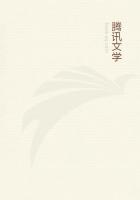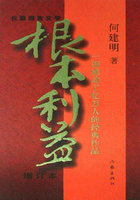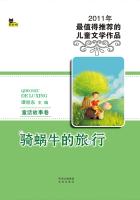There are many circumstances, which are calculated to induce a circumspect enquirer to regard the affirmative positions of astronomy, as they are delivered by the most approved modern writers, with considerable diffidence.
They are founded, as has already been said, next to the evidence of our senses, upon the deductions of mathematical knowledge.
Mathematics are either pure or mixed.
Pure mathematics are concerned only with abstract propositions, and have nothing to do with the realities of nature. There is no such thing in actual existence as a mathematical point, line or surface. There is no such thing as a circle or square. But that is of no consequence. We can define them in words, and reason about them. We can draw a diagram, and suppose that line to be straight which is not really straight, and that figure to be a circle which is not strictly a circle. It is conceived therefore by the generality of observers, that mathematics is the science of certainty.
But this is not strictly the case. Mathematics are like those abstract and imaginary existences about which they are conversant. They may constitute in themselves, and in the apprehension of an infallible being, a science of certainty. But they come to us mixed and incorporated with our imperfections.
Our faculties are limited; and we may be easily deceived, as to what it is that we see with transparent and unerring clearness, and what it is that comes to us through a crooked medium, refracting and distorting the rays of primitive truth. We often seem clear, when in reality the twilight of undistinguishing night has crept fast and far upon us. In a train of deductions, as in the steps of an arithmetical process, an error may have insinuated itself imperceptibly at a very early stage, rendering all the subsequent steps a wandering farther and farther from the unadulterated truth. Human mathematics, so to speak, like the length of life, are subject to the doctrine of chances.
Mathematics may be the science of certainty to celestial natures, but not to man.
But, if in the case of pure mathematics, we are exposed to the chances of error and delusion, it is much worse with mixed mathematics. The moment we step out of the high region of abstraction, and apply ourselves to what we call external nature, we have forfeited that sacred character and immunity, which we seemed entitled to boast, so long as we remained inclosed in the sanctuary of unmingled truth. As has already been said, we know what passes in the theatre of the mind; but we cannot be said absolutely to know any thing more. In our speculations upon actual existences we are not only subject to the disadvantages which arise from the limited nature of our faculties, and the errors which may insensibly creep upon us in the process. We are further exposed to the operation of the unevennesses and irregularities that perpetually occur in external nature, the imperfection of our senses, and of the instruments we construct to assist our observations, and the discrepancy which we frequently detect between the actual nature of the things about us and our impressions respecting them.
This is obvious, whenever we undertake to apply the processes of arithmetic to the realities of life. Arithmetic, unsubjected to the impulses of passion and the accidents of created nature, holds on its course; but, in the phenomena of the actual world, "time and chance happeneth to them all."
Thus it is, for example, in the arithmetical and geometrical ratios, set up in political economy by the celebrated Mr. Malthus. His numbers will go on smoothly enough, 1, 2, 4, 8, 16, 32, as representing the principle of population among mankind, and 1, 2, 3, 4, 5, 6, the means of subsistence; but restiff and uncomplying nature refuses to conform herself to his dicta.
Dr. Price has calculated the produce of one penny, put out at the commencement of the Christian era to five per cent. compound interest, and finds that in the year 1791 it would have increased to a greater sum than would be contained in three hundred millions of earths, all solid gold. But what has this to do with the world in which we live? Did ever any one put out his penny to interest in this fashion for eighteen hundred years? And, if he did, where was the gold to be found, to satisfy his demand?
Morse, in his American Gazetteer, proceeding on the principles of Malthus, tells us that, if the city of New York goes on increasing for a century in a certain ratio, it will by that time contain 5,257,493 inhabitants. But does any one, for himself or his posterity, expect to see this realised?
Blackstone, in his Commentaries on the Laws of England, has observed that, as every man has two ancestors in the first ascending degree, and four in the second, so in the twentieth degree he has more than a million, and in the fortieth the square of that number, or upwards of a million millions. This statement therefore would have a greater tendency to prove that mankind in remote ages were numerous, almost beyond the power of figures to represent, than the opposite doctrine of Malthus, that they have a perpetual tendency to such increase as would infallibly bring down the most tremendous calamities on our posterity.
Berkeley, whom I have already referred to on another subject, and who is admitted to be one of our profoundest philosophers, has written a treatise[48] to prove, that the mathematicians, who object to the mysteries supposed to exist in revealed religion, "admit much greater mysteries, and even falshoods in science, of which he alleges the doctrine of fluxions as an eminent example[49]." He observes, that their conclusions are established by virtue of a twofold error, and that these errors, being in contrary directions, are supposed to compensate each other, the expounders of the doctrine thus arriving at what they call truth, without being able to shew how, or by what means they have arrived at it.
[48] The Analyst.
[49] Life of Berkeley, prefixed to his Works.

